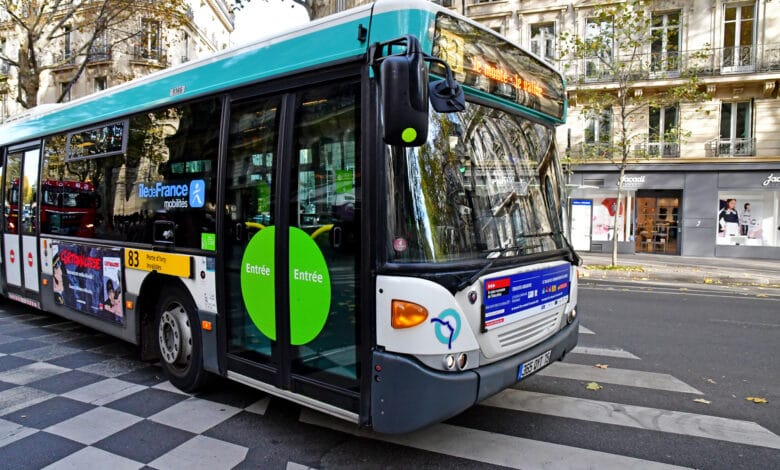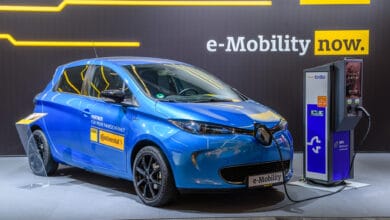
Parisian road traffic will have to do without 149 buses with electric drives. Behind this are immense safety concerns as a result of several vehicle fires.
Bus fleet shrinks by a third
Currently, many Parisians are having to show strong nerves. The city, which relies largely on public transportation, is taking a third of its popular e-buses out of service. After all, several Bluebus 5SE vehicles have now proven that the models are anything but safe. It is not yet known why the buses burst into flames. Therefore, those responsible prefer to play it safe and no longer allow the means of transport to participate in road traffic.
Expertise should clarify cause of fire
The company behind the Bluebus 5SE is Bollore. Accordingly, the French transport authority RATP has asked the manufacturer to draw up an appropriate report on the incidents. This should clarify what is behind the burning buses. Fortunately, the electric buses operating in Paris are not just Bollore models. Instead, the city relies on as many as three manufacturers for its vehicles put on the road in 2016.
Eco-friendly road transport in the big city
In the EU, Paris is considered a great role model when it comes to ecological road traffic. Private cars, for example, are now hardly part of the picture in the city center. Instead, the e-bus fleet, which has now grown to 500 vehicles, is intended to get city dwellers from A to B. Unfortunately, a third of this large fleet is now missing, leading to real traffic chaos. But soon an increase in the fleet should lead to a solution to the problem. Paris wants to deploy a total of 800 e-buses by 2024.
Costly batteries as the cause
Even if manufacturer Bollore itself first wants to get to the bottom of the cause of the fires, experts already have their first guesses. The choice of battery could possibly be the problem. Bollore relies on lithium metal polymer (LMP) batteries for its Bluebus 5SE. These are manufactured by Blue Solutions, a Canadian company. Unlike traditional vehicle batteries, no battery fluid operates in LMP batteries. Instead, they use the polymer that gives them their name, which is in a solid state. The task of the polymer is to separate the anode and cathode from each other. Otherwise there is a risk of short circuits. What sounds simple in theory seems to be error-prone in practice.
If the LMP battery is charged, the lithium produced during charging can penetrate the separator and cause a short circuit. The result can be more than just a defect. Unfortunately, a short circuit often also generates extremely high temperatures, which pose a real danger. In the worst case, a domino effect occurs that triggers unwanted processes in the battery. More expensive vehicle batteries use a protective shield around the lithium to ensure that it cannot penetrate the separating layer between the anodes and cathodes in the first place. This also seems to be the problem with the Bluebus 5SE.
Blue Solutions vows improvement
The battery manufacturer Blue Solutions is well aware of the problems with the battery used. For this reason, the company has introduced new batteries to the market only this year. These are not only to be able to be recharged faster. On top of that, they have a higher energy density. However, since nothing has changed in the basic design of the LMP battery, there is still a risk of short circuits, which can lead to an immense increase in temperature in the battery. Experts say that far more than 350 degrees are not uncommon in the battery in an emergency.
From this point on, it becomes really dangerous, as further reactions are set in motion due to the heat. In particular, oxygen is then released, which can catch fire in the battery itself. In the worst case, a chain reaction occurs at the end of which the entire vehicle can catch fire. It is therefore all the more important to find the cause of the problem and Blue Solutions is revising the batteries it uses. In particular, an investigation into design faults should bring this to light. Otherwise, it would probably have to think about banning the cheaper LMP batteries.
E-public transport as an EU project
A public transport system that increasingly relies on electric vehicles is a project close to the EU’s heart. Behind this, of course, is the goal of providing more ecological transport, especially in large cities. Accordingly, a lot of money has been flowing to France since 2020. Germany’s neighbor gratefully accepted the first 23 million euros and acted immediately. France converted many of its bus terminals to e-buses. As the project got off to a good start, France applied for further funds the following year and received support amounting to 27.7 million euros. If the EU’s largest country by area has its way, this trend is by no means set to abate. France’s self-declared goal is to buy only fully electric buses from 2025 onwards. The rest of France’s political actions are also in line with this target. Paris in particular is considered a pioneer for modern road traffic throughout Europe. From 2030, only electric cars will be allowed to drive in the metropolis.



